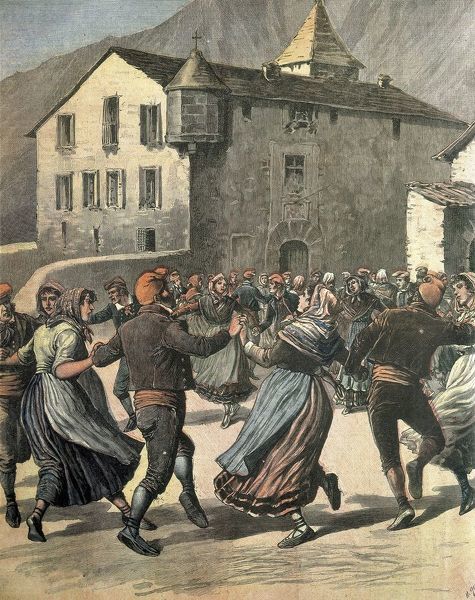Andorra
The Principality of Andorra is a landlocked independent state in the eastern Pyrenees Mountains, located between the Kingdoms of France and Spain. The region is especially known for smuggling dutied goods into France and Spain through forgery and the black market. Andorrese have almost no taxes, but must pay a small tribute every two years to the Bishop of Urgel and the King of France. The former receives pesetas, hams, chickens, and cheeses; the latter is paid an ancient fee.
The Principality covers an area of 1.5 hexes and has a population of 1,670. It borders on Foix, Urgel, Lerida and Couserans.
Geography
Andorra consists predominantly of rugged mountains, the highest being Coma Pedrosa at 9,652 ft. These are dissected by narrow valleys into the main stream, the Gran Valira, which flows out into Urgel. A small part in the northwest drains into France.
History
Andorra is the last surviving remnant of the Spanish March established by Charlemagne in 795, to stave off the Moslems from advancing into Christian France. Tradition claims Charlemagne as the father of the country, and his son, Louis the Pious, first granted the inhabitants a charter of liberty, the Andorran "Magna Carta." Andorra’s curious independence dates back to a thirteenth-century quarrel between the Spanish Bishop of Urgel and the French Count of Foix, who in 1278 finally reached an agreement, known as the Pariatjes, dividing the country between them. The compact still exists today.
Trade
| Place | Topography | Product References |
|---|---|---|
| Andorra | region | iron, lead, cheese, beef, poultry & eggs, smoked ham, beech wood, barley, oats, tobacco, livestock, mules, sheep, swine, cattle (3) |
| Name | Population | Year founded |
Product References |
|---|---|---|---|
| Andorra la Vella | 167 | 988 | market |
